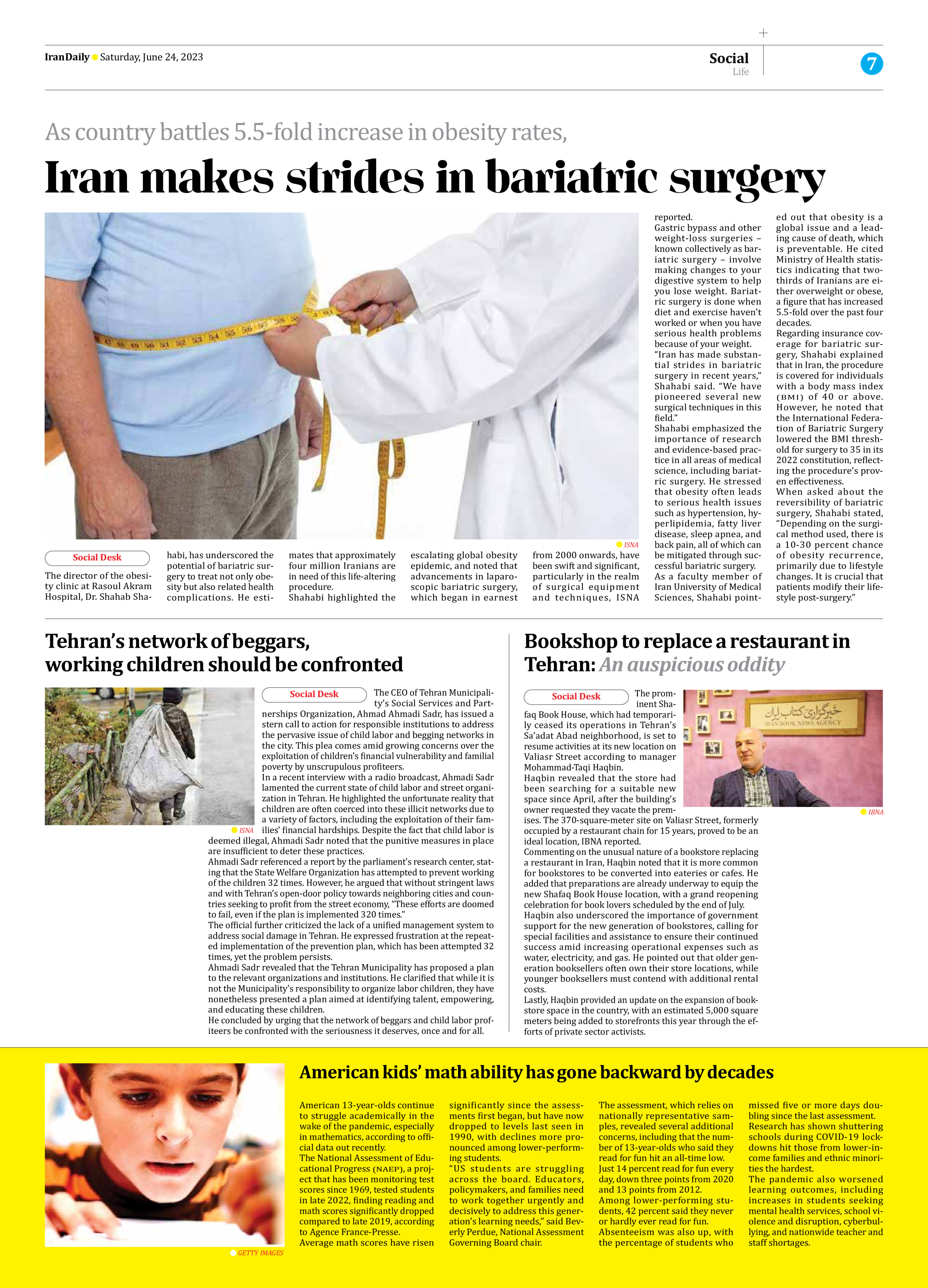
As country battles 5.5-fold increase in obesity rates,
Iran makes strides in bariatric surgery
The director of the obesity clinic at Rasoul Akram Hospital, Dr. Shahab Shahabi, has underscored the potential of bariatric surgery to treat not only obesity but also related health complications. He estimates that approximately four million Iranians are in need of this life-altering procedure.
Shahabi highlighted the escalating global obesity epidemic, and noted that advancements in laparoscopic bariatric surgery, which began in earnest from 2000 onwards, have been swift and significant, particularly in the realm of surgical equipment and techniques, ISNA
reported.
Gastric bypass and other weight-loss surgeries – known collectively as bariatric surgery – involve making changes to your digestive system to help you lose weight. Bariatric surgery is done when diet and exercise haven’t worked or when you have serious health problems because of your weight.
“Iran has made substantial strides in bariatric surgery in recent years,” Shahabi said. “We have pioneered several new surgical techniques in this field.”
Shahabi emphasized the importance of research and evidence-based practice in all areas of medical science, including bariatric surgery. He stressed that obesity often leads to serious health issues such as hypertension, hyperlipidemia, fatty liver disease, sleep apnea, and back pain, all of which can be mitigated through successful bariatric surgery.
As a faculty member of Iran University of Medical Sciences, Shahabi pointed out that obesity is a global issue and a leading cause of death, which is preventable. He cited Ministry of Health statistics indicating that two-thirds of Iranians are either overweight or obese, a figure that has increased 5.5-fold over the past four decades.
Regarding insurance coverage for bariatric surgery, Shahabi explained that in Iran, the procedure is covered for individuals with a body mass index (BMI) of 40 or above. However, he noted that the International Federation of Bariatric Surgery lowered the BMI threshold for surgery to 35 in its 2022 constitution, reflecting the procedure’s proven effectiveness.
When asked about the reversibility of bariatric surgery, Shahabi stated, “Depending on the surgical method used, there is a 10-30 percent chance of obesity recurrence, primarily due to lifestyle changes. It is crucial that patients modify their lifestyle post-surgery.”







